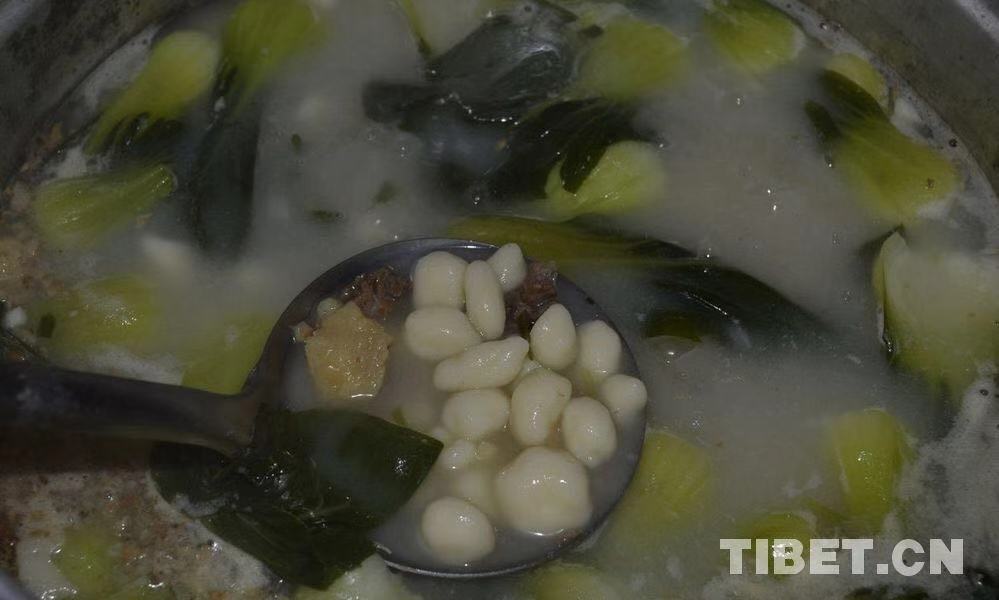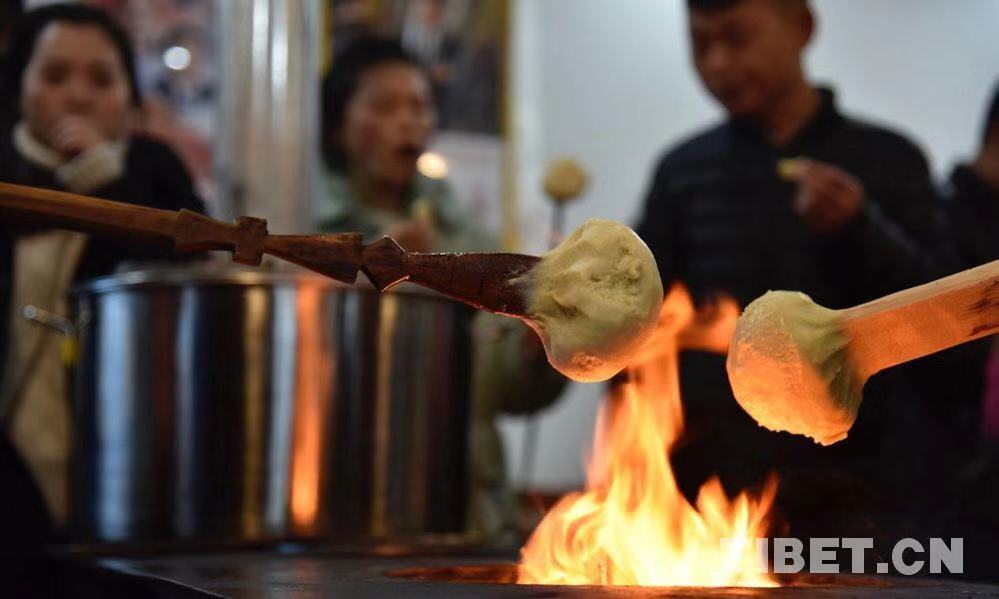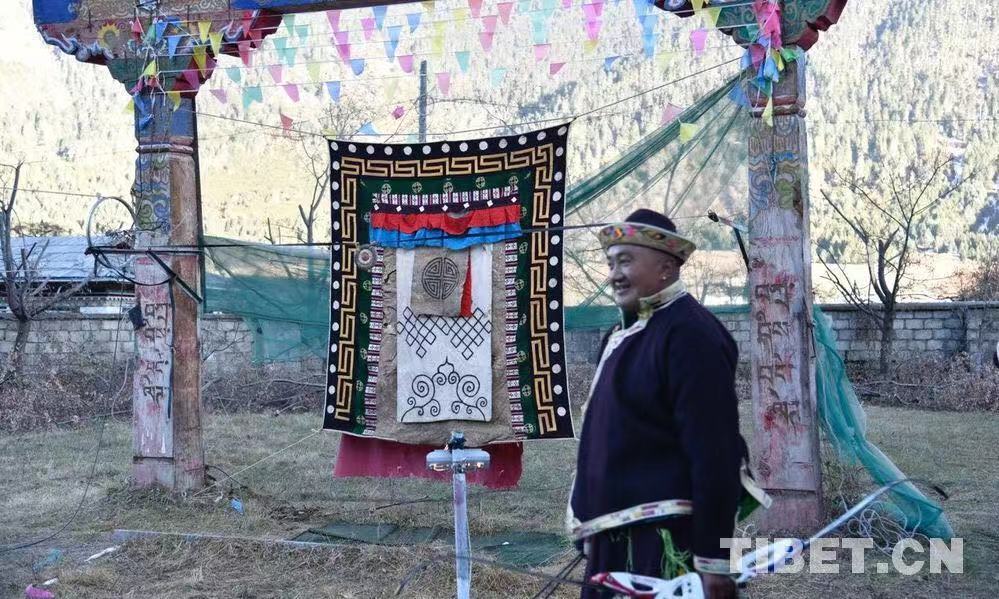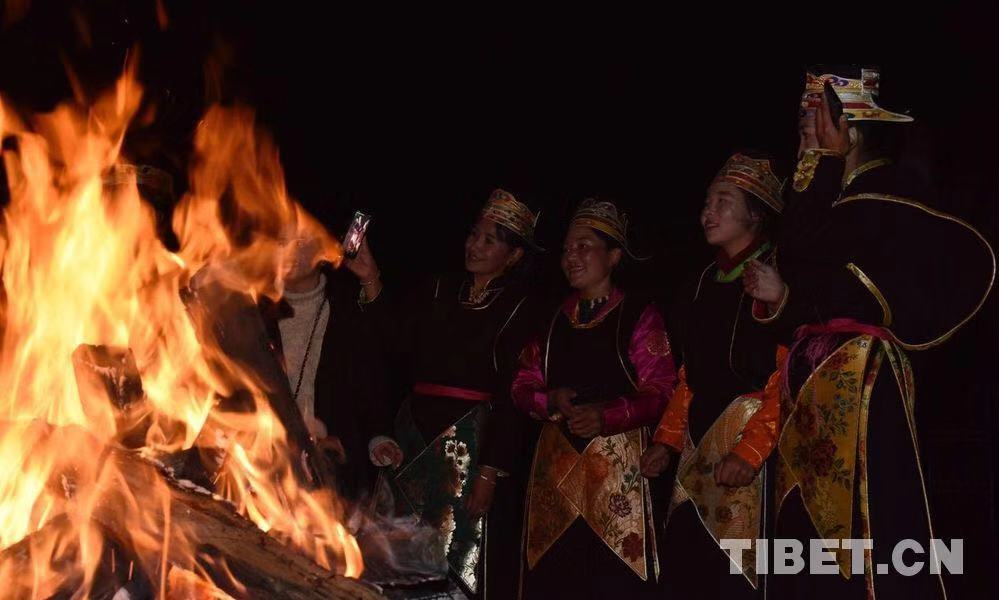
A series of events marking the opening of Nyingchi Winter Tourism and Gongbo New Year experience tour were held from November 6 to 8 in Basum Co and Lulang Town scenic spots in Nyingchi district, Tibet, as the region welcomes its “earliest”New Year, the Gongbo New Year.On September 29 in the Tibetan calendar, namely the night before the Gongbo New Year, Tibetans used to eat "Gutu". “Gutu”is a kind of doughball soup, which is made of dough, beef or lamb, ginseng fruit, radish, highland barley and so on. Besides, nine other ingredients almost the same size of the doughballs are added into the soup. They are wheat straw(meaning lucky), ginseng fruit(meaning having more delicious food), cow dung (meaning abundant), sheep wool (meaning gentle and kind-hearted), ceramic ship (meaning idleness), salt (meaning lazy), carbon grain (meaning surly and cruel), peeper(meaning sarcastic) and black bean(meaning mean). Anyone who eat any of these ingredients should spit them in public. Through this traditional custom, Tibetans pray for their coming new year, hoping everything goes well.

On the Gongbo New Year's eve, it is a custom to have "Jieda".Jieda means baking dough in Tibetan. It is a traditional food in the Gongbo region of Tibet. It is made of butter, milk and long and narrow doughballs, which are sticked on pointed sticks, and cooked on fire.

A series of events marking the opening of Nyingchi Winter Tourism and Gongbo New Year experience tour were held from November 6 to 8 in Basum Co and Lulang Town scenic spots in Nyingchi district, Tibet, as the region welcomes its “earliest”New Year, the Gongbo New Year.The picture shows the activity of shooting arrows during celebration of the Gongbo New Year.

A series of events marking the opening of Nyingchi Winter Tourism and Gongbo New Year experience tour were held from November 6 to 8 in Basum Co and Lulang Town scenic spots in Nyingchi district, Tibet, as the region welcomes its “earliest”New Year, the Gongbo New Year.The picture shows a bonfire party held during the Gongbo New Year.
